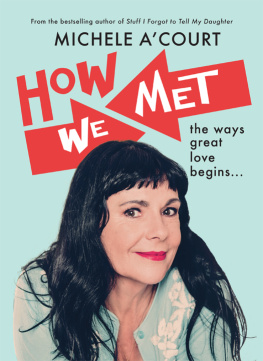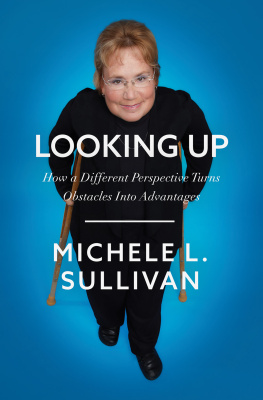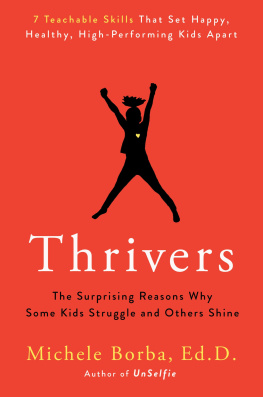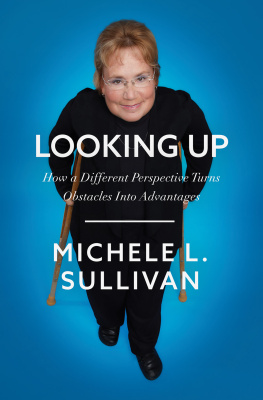Thank you for downloading this Simon & Schuster ebook.
Get a FREE ebook when you join our mailing list. Plus, get updates on new releases, deals, recommended reads, and more from Simon & Schuster. Click below to sign up and see terms and conditions.
CLICK HERE TO SIGN UP
Already a subscriber? Provide your email again so we can register this ebook and send you more of what you like to read. You will continue to receive exclusive offers in your inbox.
We hope you enjoyed reading this Simon & Schuster ebook.
Get a FREE ebook when you join our mailing list. Plus, get updates on new releases, deals, recommended reads, and more from Simon & Schuster. Click below to sign up and see terms and conditions.
CLICK HERE TO SIGN UP
Already a subscriber? Provide your email again so we can register this ebook and send you more of what you like to read. You will continue to receive exclusive offers in your inbox.
More Praise for
RULE MAKERS, RULE BREAKERS
A delightful, insightful, and fascinating look at the remarkable diversity of human customswhere they come from and how they shape our lives.
Daniel Gilbert, author of Stumbling on Happiness
Brilliant... Full of well-documented insights that will change the way you look at yourself and at the world around you.
Barry Schwartz, author of The Paradox of Choice , Practical Wisdom (with Kenneth Sharpe), and Why We Work
A particularly timely analysis for our current Age of Anxiety and uncertainty, where people and nations no longer feel confident in what the next generation and near future will bring.
Scott Atran, cofounder of the Centre for the Resolution of Intractable Conflict at Oxford University
Gelfand has done much to unravel the mysteries of human motivation.
Robert Cialdini, author of Influence and Pre-Suasion
Fascinating and illuminating... We all build order into our days, but as Gelfand shows, some of us like hewing to a line, and others enjoy crossing it.
Jonah Berger, author of Contagious and Invisible Influence
Smart, provocative, and very entertaining... Gelfand argues that the tendency to devise and abide by rules, or, alternatively, push behavioral limits, is the fundamental distinction between human societies.
Paul Bloom, professor of psychology, Yale University, and author of Against Empathy
A valuable lens for decoding the nature of our cultural conflicts and an intriguing new tool for solving them.
Colin Woodard, winner of a George Polk Award, Pulitzer Prize finalist, and author of American Nations
In this tour de force, psychologist Michele Gelfand takes us on a fascinating cross-cultural adventure.... Tightness-looseness explains everything from how you cross the street to how you cross over from the living. Never a dull moment in this enthusiastic journey.
Susan T. Fiske, professor of psychology and public affairs, Princeton University, and coauthor of The Human Brand
Dazzling... When people dont abide by socially expected rules, families, businesses, and whole societies splinter apart. But is there a downside to following the rules too closely? Read Rule Makers, Rule Breakers to find out.
Peter Turchin, author of Ultrasociety
If youre going to read one book this year to better understand the worlds problems and what can be done to solve them, Gelfands masterpiece should be it.
Alon Tal, author of The Land Is Full and founder of the Israel Union for Environmental Defense
A thought-provoking look at the contours of modern tribalismone that uses a deceptively simple dividing line: the split between tight and loose cultures and personalities.
Dante Chinni, coauthor of Our Patchwork Nation and director of the American Communities Project at George Washington University
Fantastic... Its beauty derives from the breadth of its insight as Gelfand focuses in to illuminate, in succession, countries, states, corporations, groups, and individuals.
Michael L. Tushman, coauthor of Winning through Innovation and Lead and Disrupt
Extremely important... Gelfand has identified and explored a hugely significant aspect of culture that accounts for why and when we fall into step with a group or, alternatively, set off on our own path.
Richard E. Nisbett, author of The Geography of Thought
Brilliant... Gelfands findings, which are backed by massive empirical evidence, go far to explain why the people of different countries have different worldviews.
Ronald F. Inglehart, director of the World Values Survey and author of Cultural Evolution
Everyone should read this book!... It is rare that one overarching principle can explain so much, but Michele Gelfand nails it with her brilliant analysis.... A fascinating narrative full of entertaining examples.
Timothy D. Wilson, author of Redirect
A must-read book that will fundamentally change the way you look at the world, particularly at our bewildering cultural moment.... You will emerge a smarter, broader person, with a deeper, more informed perspective for thinking and talking about the issues that consume us all.
Todd Kliman, author of The Wild Vine

Scribner
An Imprint of Simon & Schuster, Inc.
1230 Avenue of the Americas
New York, NY 10020
www.SimonandSchuster.com
Copyright 2018 by Michele Gelfand
All rights reserved, including the right to reproduce this book or portions thereof in any form whatsoever. For information, address Scribner Subsidiary Rights Department, 1230 Avenue of the Americas, New York, NY 10020.
First Scribner hardcover edition September 2018
SCRIBNER and design are registered trademarks of The Gale Group, Inc., used under license by Simon & Schuster, Inc., the publisher of this work.
For information about special discounts for bulk purchases, please contact Simon & Schuster Special Sales at 1-866-506-1949 or .
The Simon & Schuster Speakers Bureau can bring authors to your live event. For more information or to book an event, contact the Simon & Schuster Speakers Bureau at 1-866-248-3049 or visit our website at www.simonspeakers.com.
Jacket design by Alex Merto
Library of Congress Cataloging-in-Publication Data is available.
ISBN 978-1-5011-5293-1
ISBN 978-1-5011-5295-5 (ebook)
Dedicated to Martin J. Gelfand, my father, who encouraged me to explore the world, and Harry C. Triandis, my mentor, who gave me the scientific tools to understand it
Contents
Introduction
Its 11:00 p.m. in Berlin. Not a single car is in sight, yet a pedestrian waits patiently at the crosswalk until the light turns green. Meanwhile, four thousand miles away in Boston, at rush hour, commuters flout the Do Not Cross sign as they dart in front of cabs. To the south, where its 8:00 p.m. in So Paulo, locals are frolicking in string bikinis in public parks. Up in Silicon Valley, its midafternoon and T-shirted employees at Google are playing a game of Ping-Pong. And in Zurich, at the Swiss bank UBS, which for years mandated a forty-four-page dress code, executives burning the midnight oil have barely loosened their ties.
We may tease Germans for being excessively orderly or Brazilians for showing too much skin, but we rarely consider how these differences came about. Far beyond dress codes and pedestrian patterns, peoples social differences run deep and broadfrom politics to parenting, management to worship, and vocations to vacations. In the past several thousand years humanity has evolved to the point where there now exist 195 countries, and more than seven thousand languages and many thousands of religions. Even within a single nation, such as the United States, there are countless differences in fashion, dialect, morals, and political orientationsometimes among those who live in close proximity. The diversity of human behavior is astonishing, especially since 96 percent of the human genome is identical to that of chimpanzees, whose lifestyles, unlike humans, are far more similar across communities.
Next page










